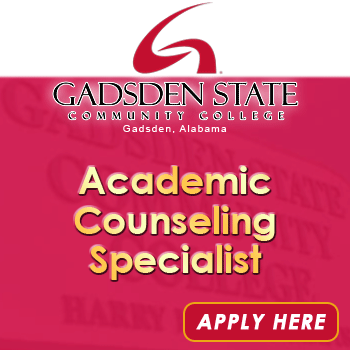
2025 PhD Graduate - Krimigis Postdoctoral Scholarship Program in the Small Bodies and Ocean Worlds Group
Job Description
DescriptionWould you like to participate as a postdoctoral fellow in cutting-edge planetary science research?
Are you interested in liquid water environments beyond Earth, and their possibility of hosting or having hosted life?
Can you imagine helping to detect, characterize, and deflect potentially hazardous asteroids that pose a threat of impacting Earth?
If you can answer "yes" to any of these questions, we want you to work with us through the Krimigis Postdoctoral Scholarship (KPS) Program in the Small Bodies and Ocean Worlds Group (SRW) at the Johns Hopkins Applied Physics Laboratory (APL). This program is named after Dr. Stamatios "Tom" Krimigis who was a team member on over 50 years of spaceflight investigations of space science, from Mariner 4 to Mars in 1965 through New Horizons to Pluto in 2015. Krimigis Fellows will be hosted by one of the science groups in the Space Science and Instrumentation Branch of the Space Exploration Sector. Key features of this program include:
- partnering with a research advisor who would provide mentoring on development both as a researcher and a science professional;
- research in cutting-edge fields of space science aligned with the research group;
- support for travel to conferences and publications;
- membership in a postdoc cohort that builds a network among peers;
- training in "soft" professional skills, including proposal-writing;
- ability and support to submit grant proposals as a principal investigator;
- a salary that is competitive in the Baltimore-Washington area;
- and a generous benefits package.
Your professional outcome will include great research opportunities, a foundation for the rest of your career, and building of connections with a variety of researchers and programs at APL, a premier space mission implementation center. We encourage students from historically underrepresented backgrounds to apply. Positions are for a 2-year term, with a possibility of extension to a third year. Most positions will be for full-time work, although part-time work (down to 50%-time) is possible by participant’s request.
The SRW group consists of 28 full- or part-time scientists, postdocs, 1 administrative staff, and multiple interns with 5 thematic sections that focus on ocean worlds of the outer solar system, astrobiology, comets, asteroids, and defending planet Earth. Collectively we work on over 130 projects. The key science questions we address are how are planets formed and how do they incorporate volatiles; where are habitable environments and what are their characteristics; and what processes (especially impacts) drive planetary evolution. Members of our group have worked on 17 past/present/future space missions and 60 past/present/future flight science instruments. We maintain 4 research laboratories (the Planetary Impact Lab, Meteorite Lab, Astrobiology Lab, and Planetary Nuclear Spectroscopy Lab) and a Science Operations Center that supports the Europa Imaging System on Europa Clipper, the Gamma-ray and Neutron Spectrometer (GRNS) on a mission to the asteroid 16 Psyche, and the MEGANE GRNS on a mission to Mars' moons Phobos and Deimos. You can learn more about us and our activities by visiting web pages describing our lab facilities, research into astrobiology, ocean worlds, and planetary science, and research into asteroids and defense of planet Earth.
Research opportunities in the Krimigis Postdoctoral Scholarship Program are primarily mentor-defined opportunities supported by funding from existing grants, missions, and other programs. You should list which topics you wish to pursue in your cover letter.
One mentor-defined topic currently available in Small Bodies and Ocean Worlds is:
- Characterize possible exchange processes between Europa’s surface and subsurface, to constrain the extent to which surface measurements can be used to interrogate the subsurface and the ocean.To address this project, the participant would model the 3D thermal and chemical evolution of the ice shell, and identify spatial and temporal changes in stress/strain that would accompany changes in ice shell structure. They would work with existing tools that compute tidal stresses and heat transfer in planetary interiors, incorporating effects and chemistry and salinity.
Other mentor-defined-topics may become available in one or more of the areas listed below. In addition, a small number of opportunities for postdoc-defined, original, high-impact research could be awarded for 50% coverage, in any of the topics listed below. If you are interested in being considered for postdoc-defined research, include a 3-page proposal with your cover letter for a hypothesis-driven research program, that addresses an important issue in one of the following areas, and can be completed and submitted for publication within a 50% effort over two years. Information on how to structure the research proposal can be found on the Krimigis Postdoctoral Scholars webpage.
- Collection, analysis, and/or interpretation of telescopic observations of volatile-bearing solar-system bodes;
- Analysis of solar system materials including meteorites and/or returned lunar samples;
- Biological or geological investigation of terrestrial environments that are analogs to potentially habitable environments on Mars or ocean worlds;
- Use of nuclear spectroscopy including neutron and gamma-ray measurements to study composition of planetary surfaces; and
- Physical processes that affect small body regoliths.
Qualifications
The Krimigis Postdoctoral Scholarship Program is open to recipients of a PhD in planetary science or a related field (e.g., physics, geology, astronomy, astrobiology) whose dissertation focused on research relevant to planetary science. Eligibility for the program requires:
- a PhD in a relevant subject awarded after January 1, 2022 (or earlier if a leave of absence has been taken).
- demonstrated ability to do independent research, and submit results for publication by the expected start date
- ability to work well within a team
You’ll go above and beyond our minimum requirements if you have one or more publications, especially with a potentially high impact.
Applications are due October 15, 2024 and notification of selections is expected by February, 2025. The start date is negotiable with the applicant.
Why work at APL?
The Johns Hopkins University Applied Physics Laboratory (APL) brings world-class expertise to our nation’s most critical defense, security, space and science challenges. While we are dedicated to solving complex challenges and pioneering new technologies, what makes us truly outstanding is our culture. We offer a vibrant, welcoming atmosphere where you can bring your authentic self to work, continue to grow, and build strong connections with inspiring teammates.
At APL, we celebrate our differences and encourage creativity and bold, new ideas. Our employees enjoy generous benefits, including a robust education assistance program, unparalleled retirement contributions, and a healthy work/life balance. APL’s campus is located in the Baltimore-Washington metro area. Learn more about our career opportunities at www.jhuapl.edu/careers.
About Us
APL is an Equal Opportunity/Affirmative Action employer. All qualified applicants will receive consideration for employment without regard to race, creed, color, religion, sex, gender identity or expression, sexual orientation, national origin, age, physical or mental disability, genetic information, veteran status, occupation, marital or familial status, political opinion, personal appearance, or any other characteristic protected by applicable law.
APL is committed to promoting an innovative environment that embraces diversity, encourages creativity, and supports inclusion of new ideas. In doing so, we are committed to providing reasonable accommodation to individuals of all abilities, including those with disabilities. If you require a reasonable accommodation to participate in any part of the hiring process, please contact Accommodations@jhuapl.edu. Only by ensuring that everyone’s voice is heard are we empowered to be bold, do great things, and make the world a better place.
*Please mention you saw this ad on AsiansInAcademia.*
Be Seen By Recruiters at the Best Institutions
Create a FREE Profile to be Seen!






